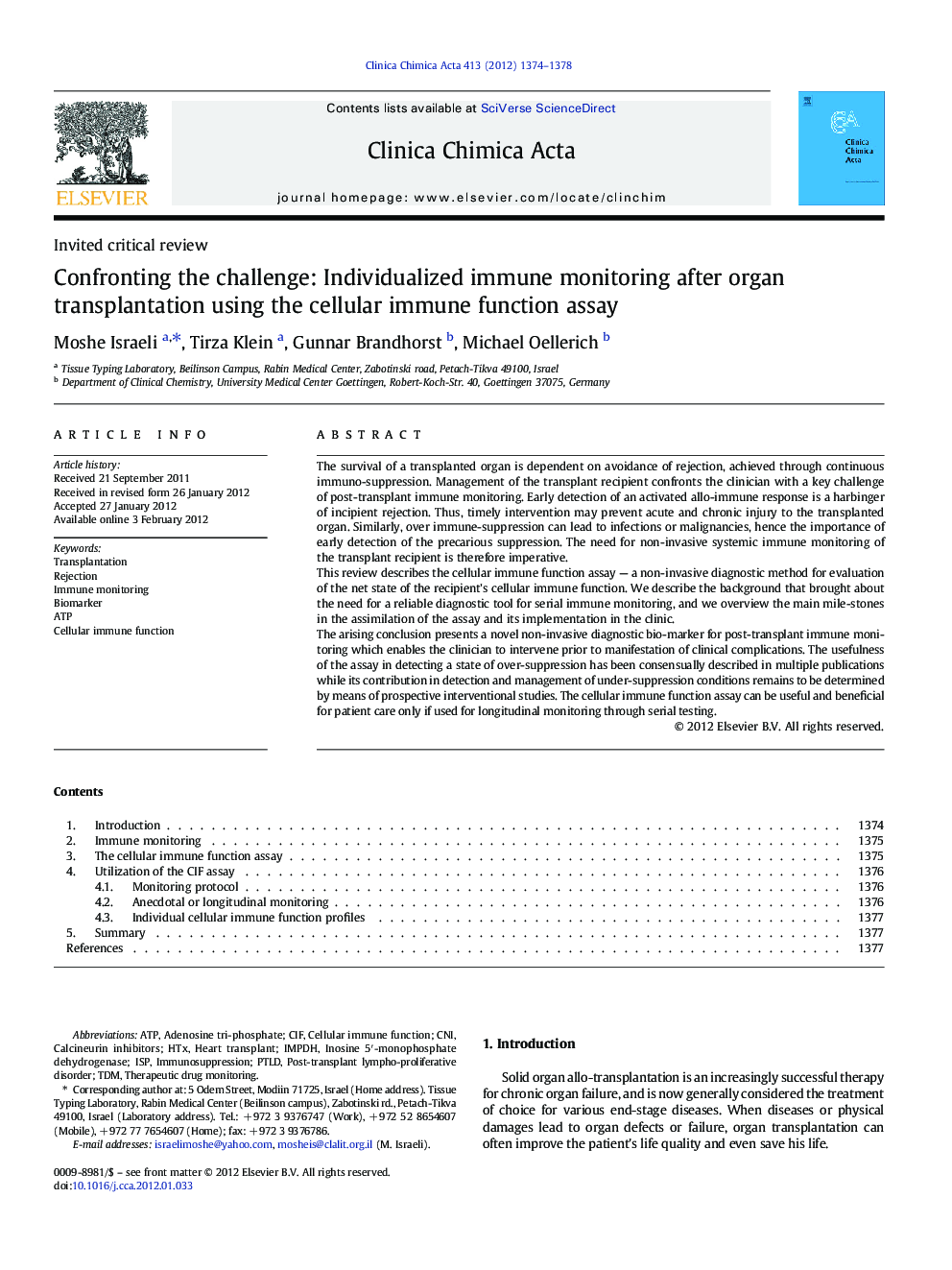| Article ID | Journal | Published Year | Pages | File Type |
|---|---|---|---|---|
| 1965908 | Clinica Chimica Acta | 2012 | 5 Pages |
The survival of a transplanted organ is dependent on avoidance of rejection, achieved through continuous immuno-suppression. Management of the transplant recipient confronts the clinician with a key challenge of post-transplant immune monitoring. Early detection of an activated allo-immune response is a harbinger of incipient rejection. Thus, timely intervention may prevent acute and chronic injury to the transplanted organ. Similarly, over immune-suppression can lead to infections or malignancies, hence the importance of early detection of the precarious suppression. The need for non-invasive systemic immune monitoring of the transplant recipient is therefore imperative.This review describes the cellular immune function assay — a non-invasive diagnostic method for evaluation of the net state of the recipient's cellular immune function. We describe the background that brought about the need for a reliable diagnostic tool for serial immune monitoring, and we overview the main mile-stones in the assimilation of the assay and its implementation in the clinic.The arising conclusion presents a novel non-invasive diagnostic bio-marker for post-transplant immune monitoring which enables the clinician to intervene prior to manifestation of clinical complications. The usefulness of the assay in detecting a state of over-suppression has been consensually described in multiple publications while its contribution in detection and management of under-suppression conditions remains to be determined by means of prospective interventional studies. The cellular immune function assay can be useful and beneficial for patient care only if used for longitudinal monitoring through serial testing.
►Long term immuno-suppressive therapy after transplantation is not a panacea. ►Immune monitoring is a major challenge in managing a patient after transplantation. ►The cellular immunity assay measures the net state of the patient's immune function. ►Longitudinal immune function monitoring may improve outcome of organ transplants.
